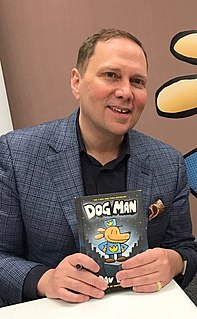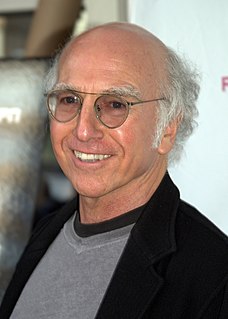A Quote by Paul F. Tompkins
Writing a book is something I actually feel like I could do. I don't know when that would happen, but I feel like if the right idea strikes, whether it be short stories or a novel or even a memoir that would be more substantial than most of the comedian memoirs people put out where it's big font and all the chapters are like ten pages long.
Related Quotes
If I'm reading something I happen to know and gets it wrong, I just don't trust the book any more. What I ask of a novel I'm reading is that it should know a fraction more about the things I know than I do. When I'm writing...I ask myself: would I be convinced by this if I read it? If I knocked against this bit of scenery, would it feel solid?
It's funny - for a long time, I didn't know I was writing a book. I was writing stories. For me, each story took so long and took so much out of me, that when I finished it, I was like, Oh my gosh, I feel like I've poured everything from myself into this, and then I'd get depressed for a week. And then once I was ready to write a new story, I would want to write about something that was completely different, so I would search for a totally different character with a different set of circumstances.
But even so, every now and then I would feel a violent stab of loneliness. The very water I drink, the very air I breathe, would feel like long, sharp needles. The pages of a book in my hands would take on the threatening metallic gleam of razor blades. I could hear the roots of loneliness creeping through me when the world was hushed at four o'clock in the morning.
The second book, which was probably more from a professional standpoint - when I read Junot Díaz's Drown, I was like, Oh my god, you can write these stories and people will actually read them beyond your own little community. This guy's book is blowing up and it seems like [he's writing about] the neighborhood that I grew up in. That was a big deal. I read that in graduate school, so that's when I was really taking writing seriously, but I didn't know you could do it. I didn't know you can actually be an author. It was a weird epiphany.
If I'm writing a story and you're reading it, or vice versa, you took time out of your day to pick up my book. I think the one thing that will kill that relationship is if you feel me condescending to you in the process. And how does that happen? Well, it happens when I know more than you do, and when I know that I know more than you do, and I'm holding it back from you. So that I can then manipulate you at the end. You know, you think about like in a dating situation how terrible that would be, it's the same thing with a book.
My goal with The Adventures of Captain Underpants was to invent a style which was almost identical to that of a picture book - in a novel format. So I wrote incredibly short chapters and tried to fill each page with more pictures than words. I wanted to create a book that kids who don't like to read would want to read.
I was a lot dumber when I was writing the novel. I felt like worse of a writer because I wrote many of the short stories in one sitting or over maybe three days, and they didn't change that much. There weren't many, many drafts. That made me feel semi-brilliant and part of a magical process. Writing the novel wasn't like that. I would come home every day from my office and say, "Well, I still really like the story, I just wish it was better written." At that point, I didn't realize I was writing a first draft. And the first draft was the hardest part.
I feel with writing, so much of the time, I don't know how to tap in and be spontaneous and alive on a daily basis. So I don't write every day. I'm just not disciplined, and I can't be in the groove most of the time. I feel like I'm in the groove ten days a year or something. But with reading and research, I feel like I have this incredibly instinctive pleasure-driven process that ends up working out for me and inspiring me. It's almost like a maze, like I know eventually I'll hit the heart of my play if I read enough books.
I'm trying to figure myself out through my movies. Whether it's big stuff like what we're doing here, or little stuff like, 'Why aren't I happier?' With every film I feel like I'm apologising for something. I feel I'm most successful when I'm looking for something that embarrasses me about my character that I'd like to expose.
I'm trying to figure myself out through my movies. Whether it's big stuff like what we're doing here, or little stuff like why aren't I happier? With every film I feel like I'm apologising for something. I feel I'm most successful when I'm looking for something that embarrasses me about my character that I'd like to expose.
I would also suggest that any aspiring writer begin with short stories. These days, I meet far too many young writers who try to start off with a novel right off, or a trilogy, or even a nine-book series. That's like starting in at rock climbing by tackling Mt. Everest. Short stories help you learn your craft.
I don't know how you feel, but I feel like writing, clarity of thought, and truth have been validated because we see what happens when we get lax in those areas. I'm excited by the idea that writers like us can actually reach out and try to understand and prod and agitate the people who are in support of Trump because we have the tools to do it. We're language people and we're idea people.
































